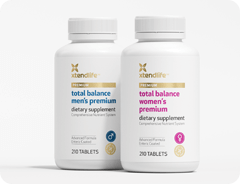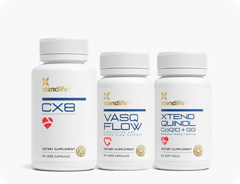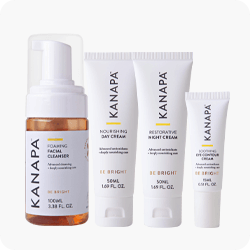Are you the type of person who gets easily angered, or seethes at the smallest annoyances? Well, epidemiological studies have suggested high levels of anger may increase the risk of coronary heart disease (CHD).
It has become apparent that people who are prone to aggression or depression may be at higher risk for future heart attack or stroke. Studies, such as one of over 5,000 Italians in Sardinia found that those who scored high for antagonistic traits like competitiveness and aggression on a standard personality test had more thickening of their neck arteries compared with those who were more agreeable.
People who have aggressively competitive traits release more Adrenaline. This is good initially as it sparks the 'fight or flight' response...a necessary tool of human survival. However, in people with aggressive traits this release goes into overdrive, and/or continues for much longer periods of time than the usual stress responses.
This 'over-exertion' of adrenaline, combined with the stresses on the cardio and surrounding systems, continued for long periods of time, can result in the development of many risk factors for cardiovascular disease.
On the flip side, calm, more agreeable people tend to only produce these 'stress factors' when their body really needs them, and only for that short period of time. This is natural and healthy.
There is no over-exertion and the body remains calm, relaxed, and normally functional otherwise, providing no additional stress or overload on the system.
So what causes this link between negative behavioral traits and serious health factors? Well, according to a compilation of studies, anger itself has been demonstrated to speed up heart rates, making blood pressure rise significantly.
This high-pressure surge of blood can tend to wear down the smooth lining of the artery walls, creating a roughened foothold for artery-clogging plaque deposits. Clotting material naturally rushes to repair any damage, but this action, if continuous and consistent, may result in further blocking the artery, and this in turn has the potential of sparking a heart attack or an abnormal heart rhythm.
This continuous action may also inhibit the breakdown of clots, and the narrowing of the coronary arteries from this work can result in more stress of the blood getting to the heart muscle, which in turn can inhibit nerve signals that help maintain normal heart rhythms.
So, the more you get stressed or angry, the greater your potential risk of a cardio abnormality.
Even as far back as 1999, trials where being published finding that “...hostile people are 50 to 100% more likely than others to develop coronary disease or have a heart attack.”
In the United States many clinicians dealing with cardio disease now actively include individual or group therapy and relaxation / stress management techniques to try to help cut the risk of a second heart attack nearly in half. Relaxation and physical exercise are important components to dealing with anger as well as part of a healthy lifestyle.
Depression has many similar traits to anger. With increased systemic strain and natural chemical imbalances related to the same major organs and systems that can severely impair heart rate variability, it is clear that depression is also associated with the same biological changes involving increased heart rate, inflammatory response, plasma norepinephrine, platelet reactivity...all of which is associated with potential life-threatening stresses on essential bodily systems.
So, as part of your cardio health regime, as well as including good diet, fluid intake, exercise, and protective or helpful supplementation such as CX8 Heart Health Support, Omega 3 / QH Premium CoQ10, also consider your needs for relaxation and eliminating emotional strain, and potential physiological help in the areas of depression and stress, whether anger or anxiety related.
Our Serene Saffron may be a helpful addition if any of these factors apply to you. Breathing technique practice and yoga are excellent for stress relief and calming the body and mind, as well as cognitive techniques to change your outlook towards certain aspects giving you a new positive attitude.
Working with lifestyle, supplementation, and both mental and physical exercise, you can give yourself a more positive regime that may just lead to happier and longer life-path.


 Supplements
Supplements Bundles
Bundles









